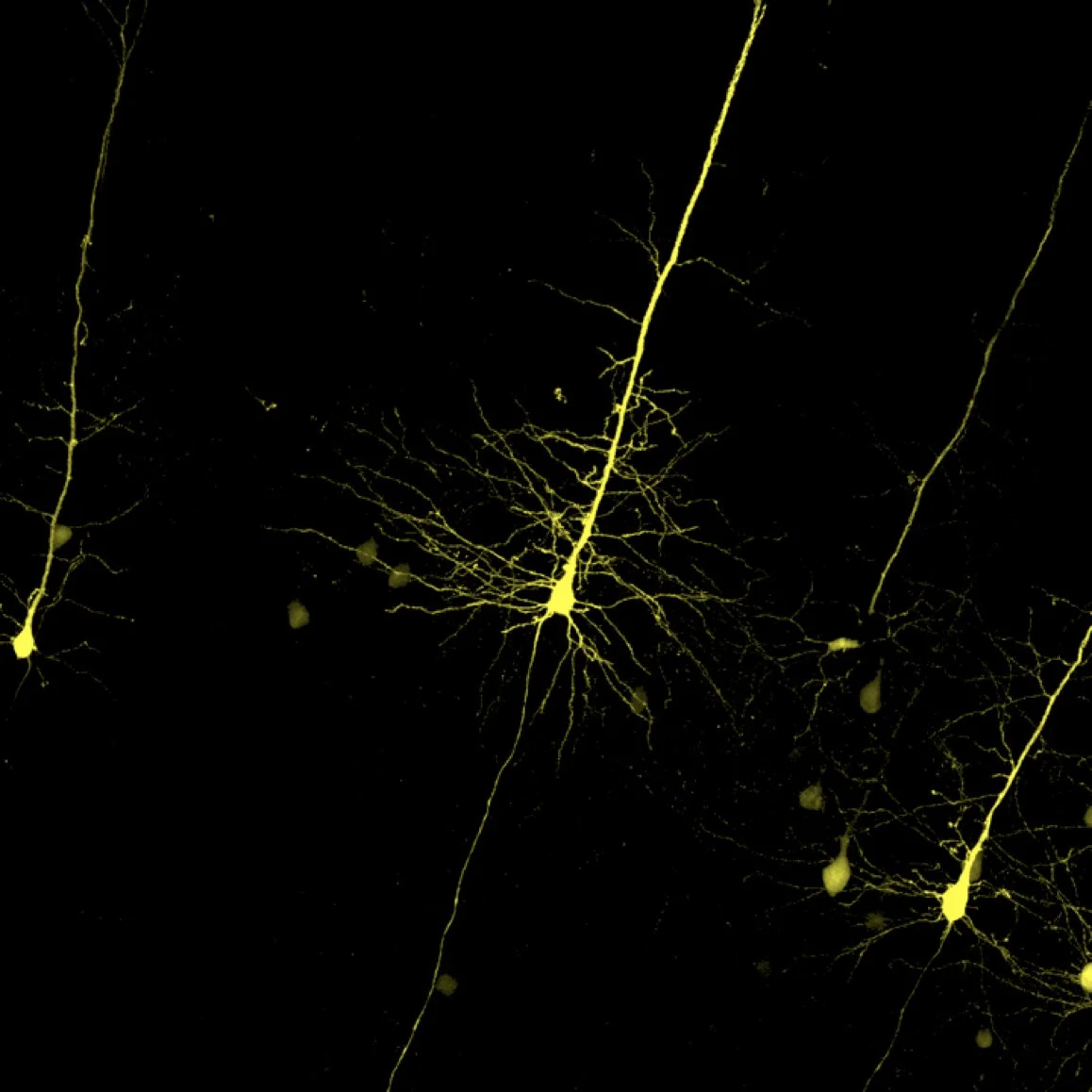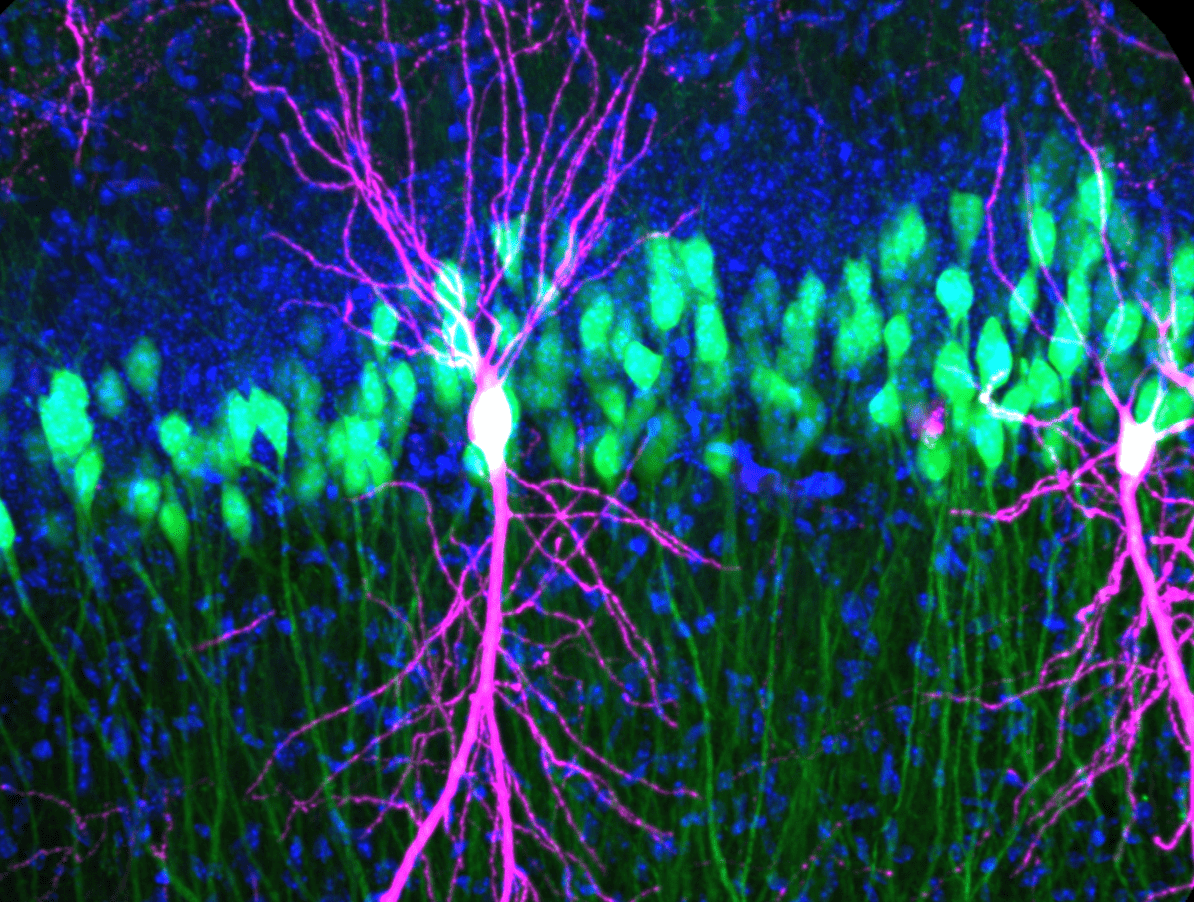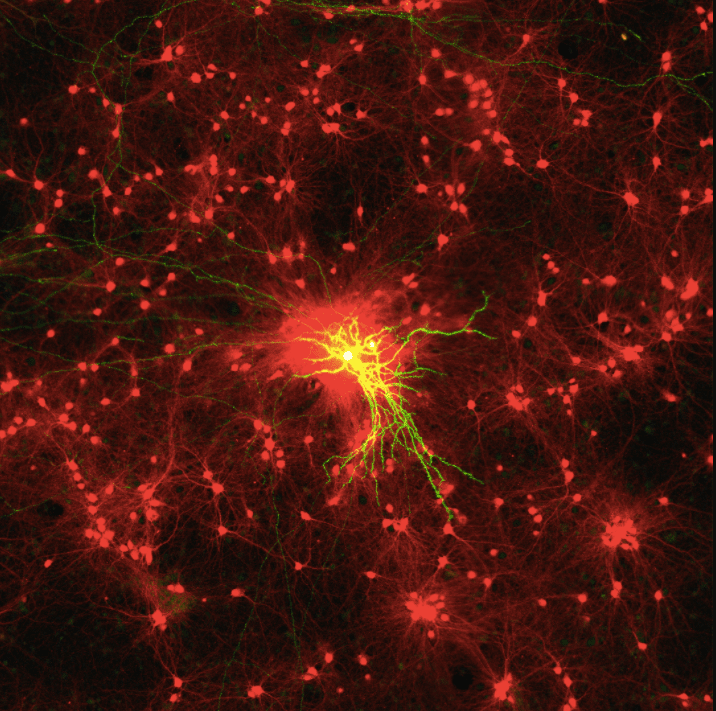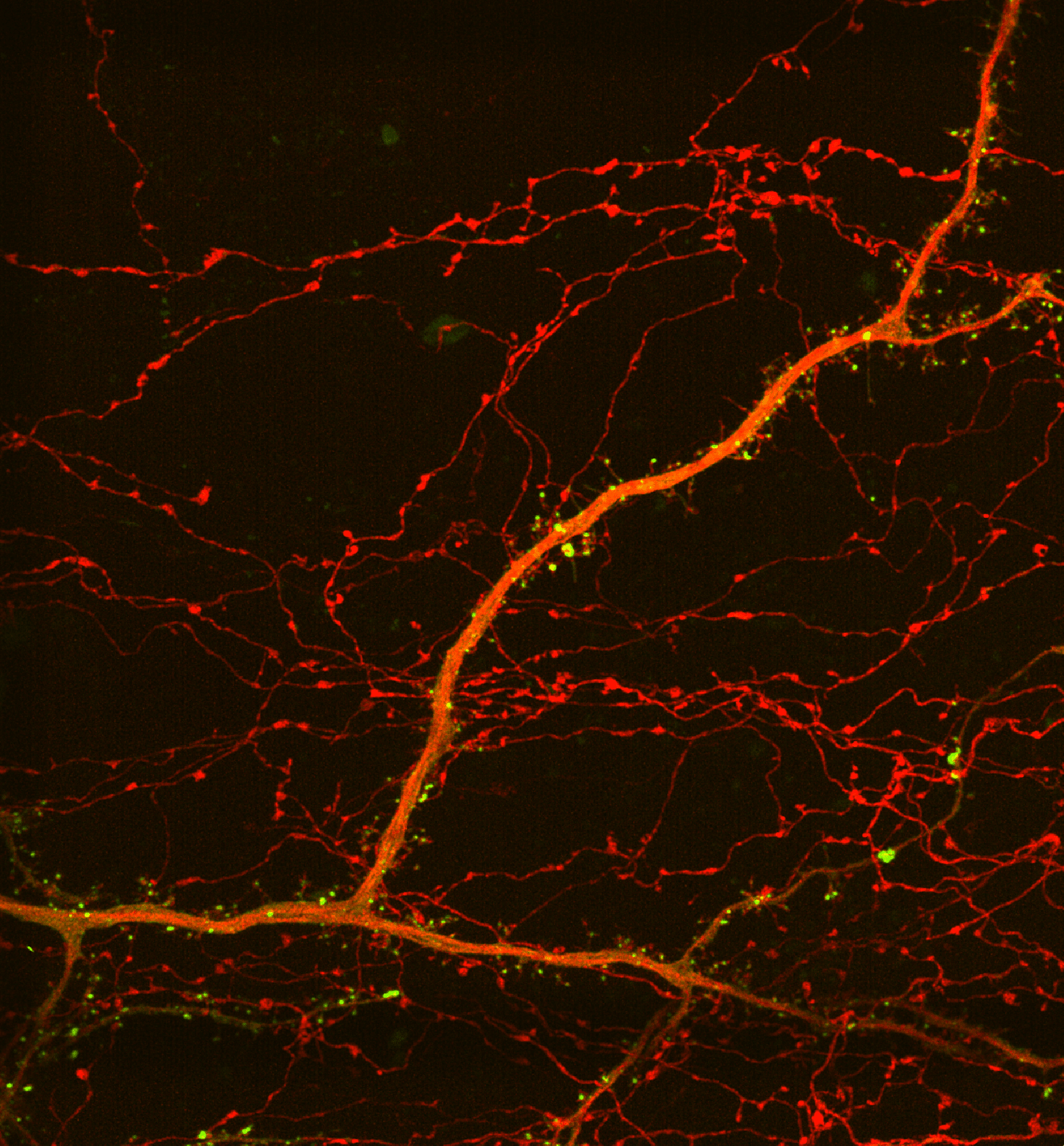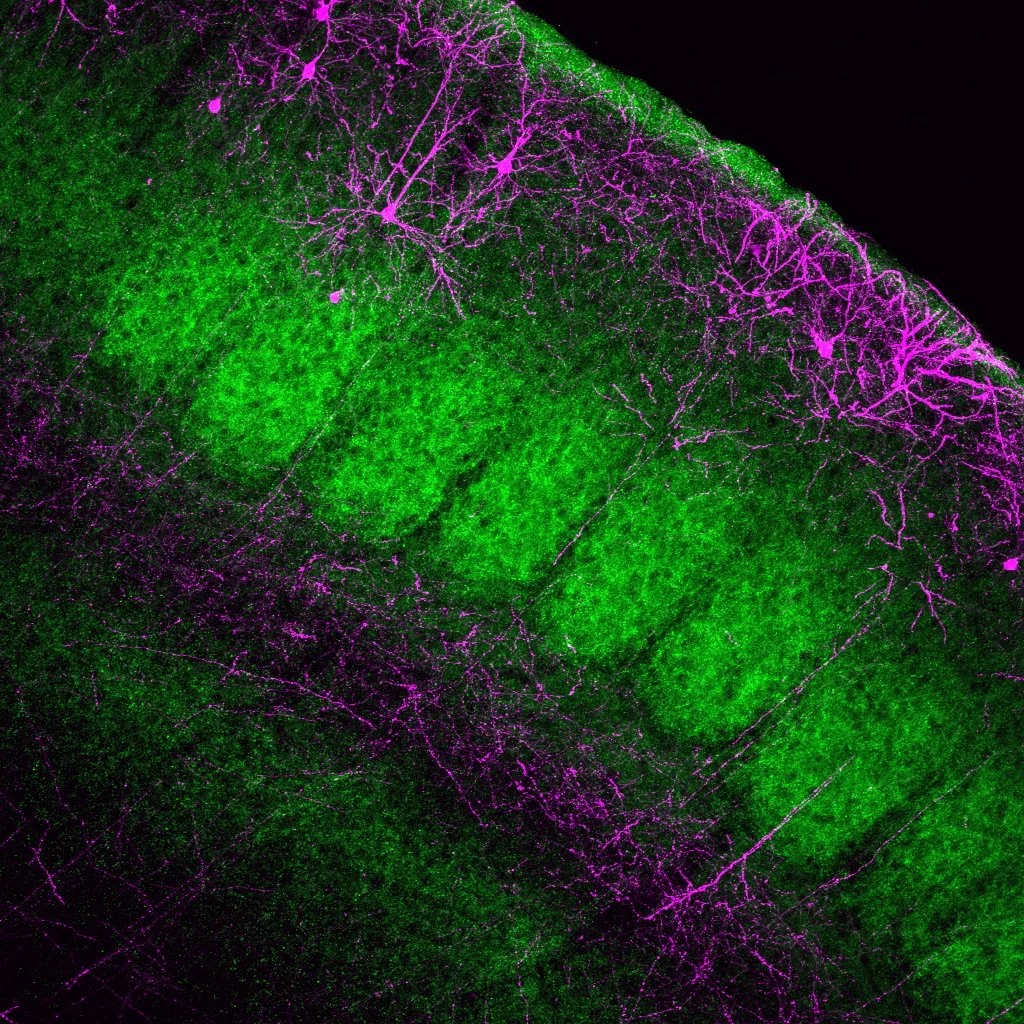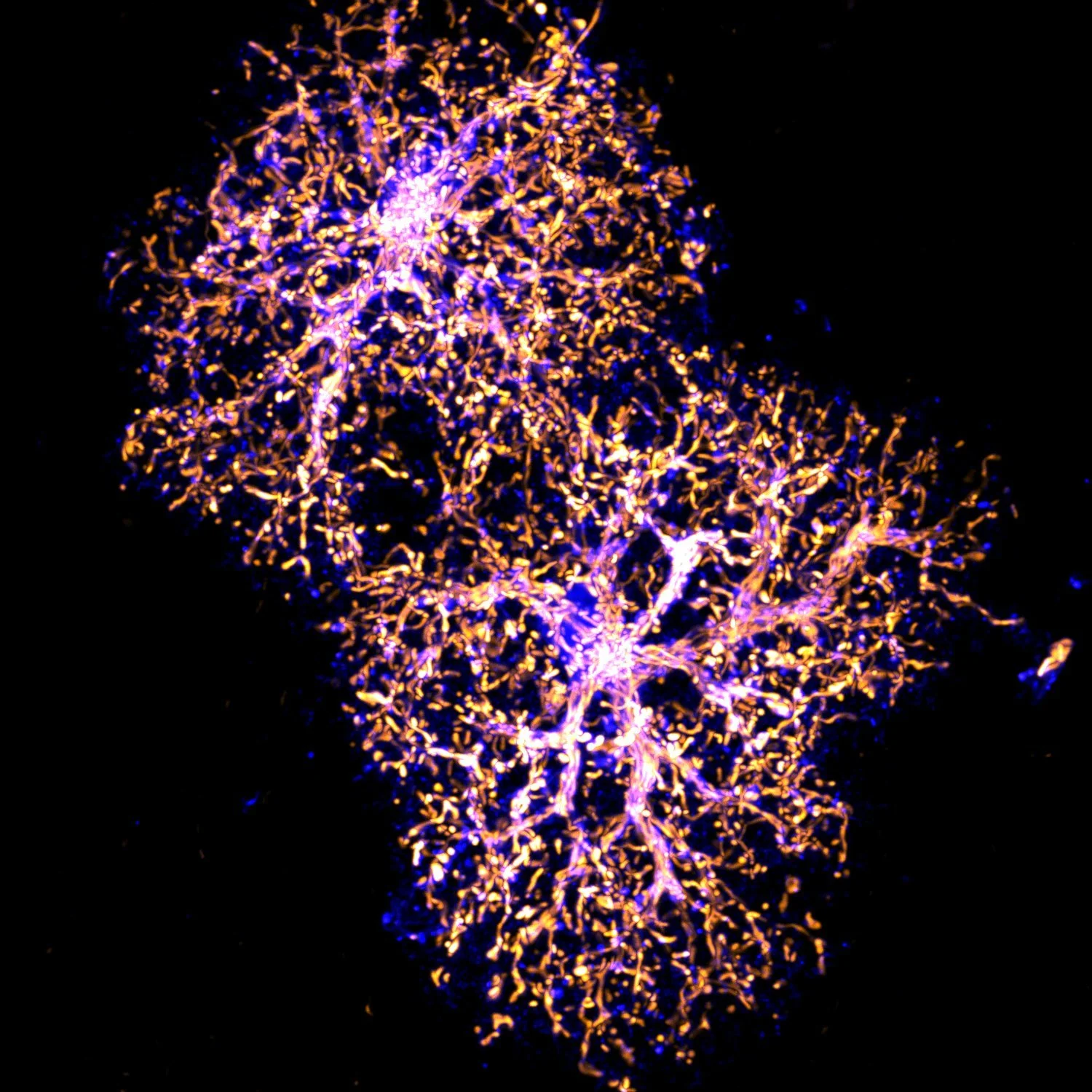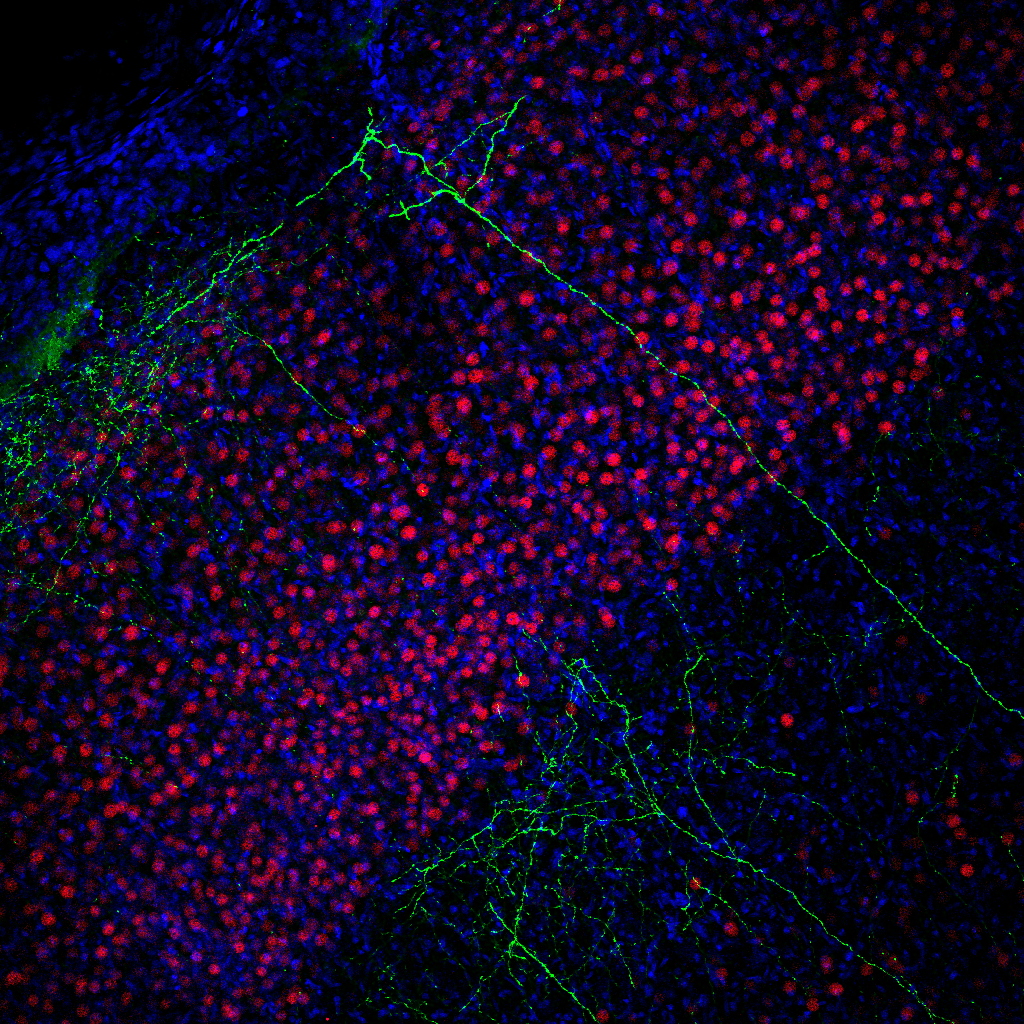Polleux Lab
Circuit development, evolution and maintenance
Research
Research in the Polleux laboratory focuses on three important questions relevant to the brain
Our work provides new insights into the cellular and molecular mechanisms underlying the establishment and maintenance of brain connectivity and has significant implications for our understanding of the pathophysiological mechanisms underlying socially-devastating neurodevelopmental disorders and neurodegenerative diseases.
Cell Biology of Neuron
What are the cellular and molecular mechanisms patterning and connectivity of cortical circuits during mammalian development?
Evolution
What are the genetic mechanisms that led to the evolution of human cortical circuits?
Aging
What are the signaling mechanisms underlying synaptic loss during early stages of Alzheimer’s Disease?
About the PI
Dr. Franck Polleux did his undergraduate and graduate studies at Université Claude Bernard in Lyon, (France) where he obtained his Ph.D. in Neuroscience in 1997. He then joined the laboratory of Dr. Anirvan Ghosh at Johns Hopkins University for his post-doctoral training.
In 2002, Dr Polleux was hired as an Assistant Professor in the Neuroscience Center and Department of Pharmacology at the University of North Carolina- Chapel Hill where he became an Associate Professor in 2008. In August 2010, he joined The Scripps Research Institute in La Jolla, California. In November 2013, he was recruited as a Professor in the Department of Neuroscience at Columbia University to join the new Mortimer B. Zuckerman Mind, Brain, Behavior Institute.
Throughout his career, Dr Polleux has focused on the identification of the molecular mechanisms underlying neuronal development in the mammalian brain. More recently, his lab started studying the genetic basis of human brain evolution as well as the signaling pathways underlying synaptic loss during early stages of Alzheimer’s Disease progression.
Watch Franck's talk on World Wide Neuro
Watch Franck’s talk on mitoTalks
[CV]



